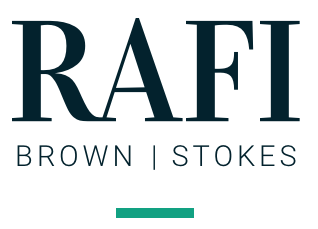One of the most common questions we get asked as Atlanta personal injury lawyers is, “Where should I go get medical treatment after my car crash?” There is no simple answer and it can vary greatly depending on the type of injury you have. In almost every case, our answer is to go to a facility within your health insurance network that another doctor you trust recommends. That doctor can be your primary care physician or the doctor who treated you in the emergency department of the hospital after the crash.
Unfortunately, many injured people go to “accident injury centers” that they see advertisements and billboards for. There, they receive expensive treatment that may not actually help them get better. These facilities advertise they have everything under the sun to help you recover—chiropractors, primary care physicians, physical therapists, orthopedists, pain management doctors, etc. But what they do not tell you is that they will not accept payment through your health insurance, and they charge much more than the facilities who do. This can end up costing you way more than if you went to a doctor within your health insurance network.
If these accident injury centers do not accept health insurance, you may wonder how it is that they get paid for this high-priced medical treatment. The answer is two-fold: medical payments coverage through the injured person’s car insurance and by charging against the injured person’s personal injury case through a medical lien.
Medical Payments Coverage
Medical payments coverage is a type of insurance issued by car insurance companies. The same policy that provides coverage for property damage to your car or bodily injury to the drivers around you, can provide coverage for your medical bills regardless of whether you are at fault for a crash. Typically, medical payments coverage is a low number—anywhere from $500.00 to $10,000.00—compared to the amount of the other types of coverage in your insurance contract. Your car insurance company will pay money to you if you provide them with evidence that you incurred bills more than the amount of coverage you have.
For example, if you have $6,000.00 in outstanding medical bills and $5,000.00 in medical payments coverage, you may ask your car insurance to issue you a check for the full amount. Accident injury centers take advantage of their patient’s medical payments coverage by asking for your permission to bill through it directly. Once you sign on the dotted line, they can reach out the insurance company and receive payment directly instead of you receiving that money yourself. After the medical payments coverage is exhausted, they continue to bill against your case in the form of medical liens.
Medical Liens
Medical liens can be very complicated. There are entire books dedicated to how to navigate them. Generally speaking, a lien is a formal interest a medical provider has in an individual’s personal injury lawsuit. That means, the provider does not ask for payment until your case is over and you receive compensation. Then, they take the money for the amounts they charged you out of your settlement. Unlike with health insurance, the medical providers who treat patients on a lien charge the full sticker price for the care, whereas a health insurance company has a lower negotiated rate with each provider in their network that they will pay for certain services.
Health Insurance Subrogation
Although going to medical providers that accept your health insurance is the best approach, that does not mean that you are exempt from having to pay someone back for your medical treatment. Health insurance companies can attempt to reclaim some or all the money they paid to providers on your behalf if you receive compensation in a personal injury lawsuit. This process is called subrogation and it is where the health insurance company uses its insured to recover money from the person who caused them harm in lieu of pursuing the claim themselves. The amount of money the health insurance company is entitled to recoup depends on the amount they paid and the law that governs the policy.
So, What Should You Do?
In a perfect world, you would have both health insurance and medical payments coverage through your car insurance. The right combination of these insurance coverages combined with treatment from providers that are within your health insurance network gives you the most possible money in your pocket at the end of your case.
We suggest our clients go get treatment in accordance with their doctor’s recommendations within their health insurance network. That way, the out-of-pocket costs you must incur do not exceed your health insurance deductible. If your car insurance and health insurance are optimized properly, the amount of your health insurance deductible will be the same as the amount of medical payments coverage under your car insurance policy. So, if your health insurance deductible is $5,000.00, your medical payments coverage should be $5,000.00 too.
If you recover money for your injuries and your health insurance asks to be repaid, they typically do not ask to be repaid dollar-for-dollar. While we talked about the sticker price of medical treatment earlier in the context of medical liens, health insurance companies typically have a reduced amount they will pay providers in their network for certain services. Then, when they seek reimbursement through subrogation, they typically ask for only a percentage of what they paid in return. So, if you go to the doctor and incur a bill for $10,000.00, your health insurance company will pay a lower amount to satisfy the charges you incurred. Then, they will only seek reimbursement for a percentage of the already reduced amount.
Figuring out where to go to get the treatment you need and how to use the different types of insurance to protect your pocketbook can be complicated. But the most important part is to go where you need to get better and try not to be put in a tough financial position as a result. At Rafi Law Firm, we have helped many clients like you and we can help guide you through this difficult process and make sure you recover the most you possibly can from all available insurance. Call 404-948-3311 or click here for a free consultation to see if we can help.


